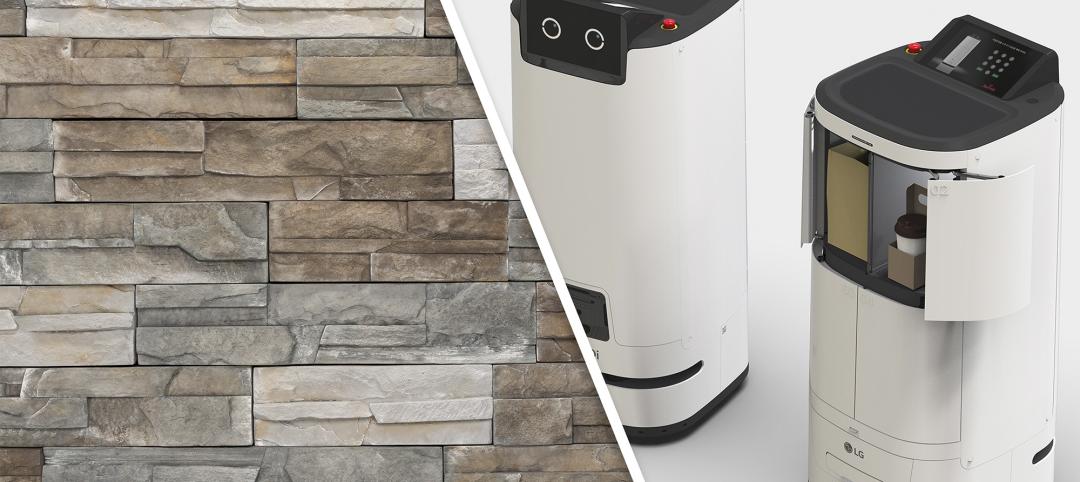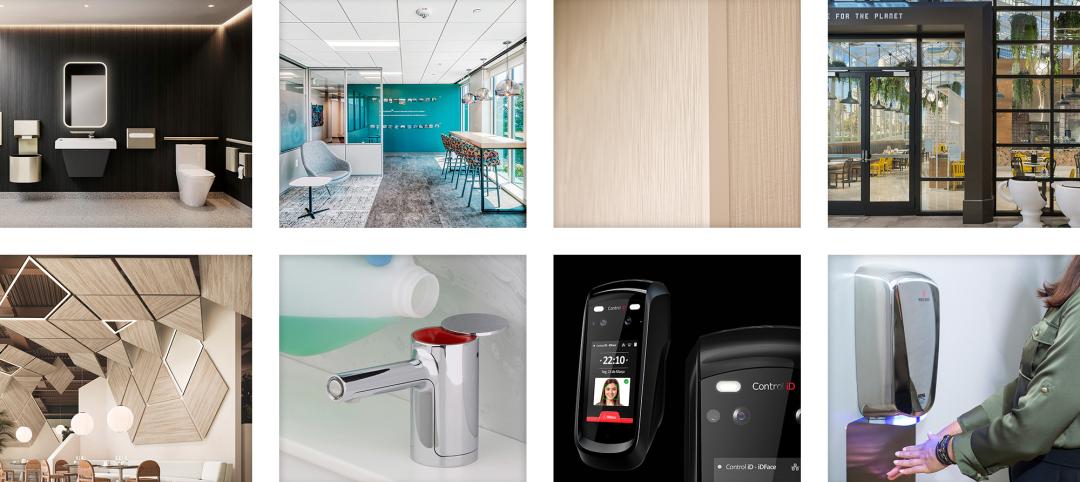In a new brief released on Sept. 29, the U.S. Green Building Council (USGBC) and Green Business Certification Inc. (GBCI) outline an expanded suite of programs and resources focused on improving building and community resilience in the face of climate risks. While governments and businesses focus on economic recovery, more frequent and severe climate events threaten to interrupt progress. Green building helps companies and communities adapt to and mitigate the effects of these growing climate concerns.
“Green buildings are the first step to creating more resilient businesses and communities while also supporting economic development and growth,” said Mahesh Ramanujam, president and CEO of USGBC and GBCI. “We know people, especially those in our most vulnerable communities, are already experiencing the costs of a changing climate and the resilience of the people in these structures is a critical factor. Resilient design, construction and operations verified through green building and infrastructure certifications can help reduce risk and vulnerability. USGBC and GBCI’s resources serve as a roadmap for resilience that has the ability to save companies money and improve the standard of living for all.”
The building and construction industry must accelerate its adoption of strategies and practices that respond to climate threats communities are currently facing. The new brief outlines USGBC and GBCI’s existing resilience resources along with new opportunities and include:
— LEED: The most widely used green building rating system offers a series of resilience design pilot credits that ensure project teams are aware of and are addressing vulnerabilities. The credits are available for new construction and align with the RELi Rating System. Currently, more than 200 projects have registered to pursue the credits. The LEED for Cities and Communities program outlines options to enhance resilience beyond a single building. More than 110 cities and communities have certified.
— Certification Systems: GBCI integrates resilience strategies across several rating systems. RELi takes a holistic approach to resilience and helps developers, companies, city planners and others assess and plan for acute hazards. LEED credits can also count toward RELi certification. PEER serves as a roadmap for designing and operating resilient and reliable power systems and microgrids and has more than 30 certified projects that serve more than seven million people. SITES focuses on creating regenerative landscapes and ecologically resilient communities and has nearly 150 projects participating.
— Data & Technology: Data will define the future of green building, which is why USGBC is working with Coastal Risk Consulting to deliver a RiskFootprint™ for buildings, communities and cities that provides a climate risk analysis. The service will integrate with LEED, Arc and GBCI rating systems to help assess a project’s vulnerability.
— Workforce Education: Equipping professionals with the latest skills and knowledge is critical to scaling resilient practices and Education @USGBC offers courses from experts working on resilience. USGBC will also open a call for ideas on enhancing resilience across the green building industry. GBCI is also developing a new RELi professional credential expected to be ready in 2021.
— Advocacy: USGBC works with federal, state and local governments and jurisdictions to advocate for policies, guidance and incentives that support green buildings and communities. A goal of that work is to ensure disaster recovery funds are spent on high quality, resilient buildings that mitigate climate risks and promote social equity and health. The latest advocacy activities are housed in the USGBC Center for Resilience.
— Partnerships: USGBC will leverage its network of members, partners and LEED users to build a community of leaders for resilient buildings, communities and cities. USGBC will establish partnerships with a variety of organizations committed to advancing resilience.
The resilience offerings are part of USGBC’s reimagined vision and economic recovery strategy, Healthy People in Healthy Places Equals a Healthy Economy. Resilience is a critical component of building a healthier, more sustainable future, but can also influence how companies and governments respond to social and economic disruptions. Resilience planning helps future proofs assets and support communities in times of crisis.
Over the last two years, reportedly more than 16 million people globally, including an estimated 1.2 million Americans, were displaced because of climate events. A number that is expected to continue to grow impacting livability and workability. In a 2019 report from CDP, a group of the world’s largest companies valued climate risks to their businesses at almost $1 trillion – with many likely to occur within the next five years. It reinforces the need for immediate solutions that can help mitigate social and economic costs that are predicted in the near term. Green building programs like LEED, RELi and other GBCI rating systems outline for business leaders and government officials necessary actions and provide a framework for communicating progress.
To learn more about resilience in the building industry, USGBC’s annual Resilience Summit will be held at Greenbuild 2020 on Oct. 1, featuring resilience leaders and the opportunity to learn the newest research and technology around resilience-enhancing designs, technologies, materials and methods. Registration for the Summit and Greenbuild virtual events is open.
Related Stories
Government Buildings | Aug 1, 2024
One of the country’s first all-electric fire stations will use no outside energy sources
Charlotte, N.C.’s new Fire Station #30 will be one of the country’s first all-electric fire stations, using no outside energy sources other than diesel fuel for one or two of the fire trucks. Multiple energy sources will power the station, including solar roof panels and geothermal wells. The two-story building features three truck bays, two fire poles, dispatch area, contamination room, and gear storage.
Products and Materials | Jul 31, 2024
Top building products for July 2024
BD+C Editors break down July's top 15 building products, from Façades by Design to Schweiss Doors's Strap Latch bifold door.
Geothermal Technology | Jul 29, 2024
Rochester, Minn., plans extensive geothermal network
The city of Rochester, Minn., home of the famed Mayo Clinic, is going big on geothermal networks. The city is constructing Thermal Energy Networks (TENs) that consist of ambient pipe loops connecting multiple buildings and delivering thermal heating and cooling energy via water-source heat pumps.
Smart Buildings | Jul 25, 2024
A Swiss startup devises an intelligent photovoltaic façade that tracks and moves with the sun
Zurich Soft Robotics says Solskin can reduce building energy consumption by up to 80% while producing up to 40% more electricity than comparable façade systems.
Sustainability | Jul 18, 2024
Grimshaw launches free online tool to help accelerate decarbonization of buildings
Minoro, an online platform to help accelerate the decarbonization of buildings, was recently launched by architecture firm Grimshaw, in collaboration with more than 20 supporting organizations including World Business Council for Sustainable Development (WBCSD), RIBA, Architecture 2030, the World Green Building Council (WorldGBC) and several national Green Building Councils from across the globe.
Green | Jul 8, 2024
Global green building alliance releases guide for $35 trillion investment to achieve net zero, meet global energy transition goals
The international alliance of UK-based Building Research Establishment (BRE), the Green Building Council of Australia (GBCA), the Singapore Green Building Council (SGBC), the U.S. Green Building Council (USGBC), and the Alliance HQE-GBC France developed the guide, Financing Transformation: A Guide to Green Building for Green Bonds and Green Loans, to strengthen global cooperation between the finance and real estate sectors.
Sustainability | Jul 1, 2024
Amazon, JPMorgan Chase among companies collaborating with ILFI to advance carbon verification
Four companies (Amazon, JPMorgan Chase, JLL, and Prologis) are working with the International Living Future Institute to support development of new versions of Zero Carbon Certification.
Products and Materials | Jun 30, 2024
Top products from AIA 2024
This month, Building Design+Construction editors are bringing you the top products displayed at the 2024 AIA Conference on Architecture & Design. Nearly 550 building product manufacturers showcased their products—here are 17 that caught our eye.
Sustainability | Jun 26, 2024
5 ways ESG can influence design and create opportunities
Gensler sustainability leaders Stacey Olson, Anthony Brower, and Audrey Handelman share five ways they're rethinking designing for ESG, using a science-based approach that can impact the ESG value chain.
Sustainability | Jun 24, 2024
CBRE to use Climate X platform to help clients calculate climate-related risks
CBRE will use risk analysis platform Climate X to provide climate risk data to commercial renters and property owners. The agreement will help clients calculate climate-related risks and return on investments for retrofits or acquisitions that can boost resiliency.

















